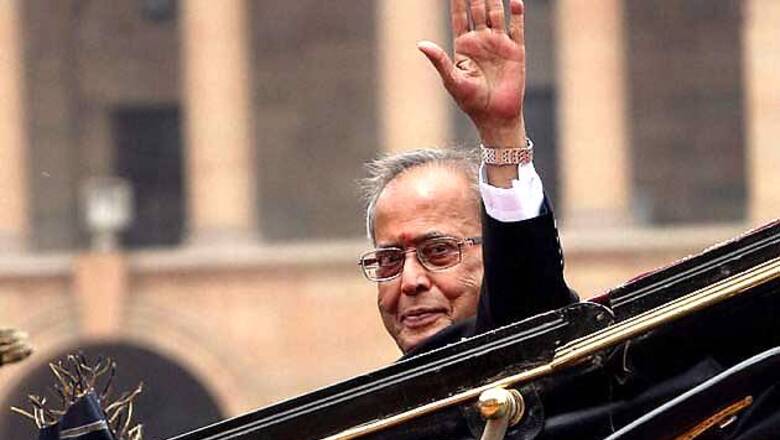
views
Dhaka: Bangladesh rolled out the red carpet for President Pranab Mukherjee who arrived at Bangladesh on Sunday for a three-day state visit but his tour came under a shadow as opposition leader Khaleda Zia cancelled her meeting with him amidst a general strike by Jamaat-e-Islami to protest conviction of its three top leaders for 1971 war crimes.
Mukherjee, 77, on his first foreign visit as President, arrived in the country which has been marred by continuous violence that has claimed nearly 80 lives after conviction of Islamist leaders for 1971 war crimes. Bangladesh Nationalist Party (BNP), which called a countrywide shutdown on Tuesday, the concluding day of Mukherjee's visit, cited no reason officially to call off Zia's meeting with the President.
Zia's political adviser Shamser Mobin Chowdhury was understood to have conveyed to Indian government a couple of days ago her inability to meet Mukherjee. Interestingly, Khaleda had met Mukherjee in New Delhi in November 2012 during her nine-day visit to India.
However, the strike or the cancellation of Zia's meeting with Mukherjee did little to distract from the President's main agenda of intensive interaction with top Bangladesh leadership including Prime Minister Sheikh Hasina, Foreign Minister Dipu Moni and Finance Minister Abul Maal Abdul Muhith. Mukherjee discussed substantive unresolved issues like Teesta water-sharing treaty and implementation of the land boundary agreement of 1974 with the top Bangladesh leadership.
He conveyed to Bangladeshi leaders, India's commitment to sort out the unresolved issues. Emerging from a 40-minute meeting, Dipu Moni told reporters that she had raised the Teesta and land boundary deal with Mukherjee who, she said, expressed the hope that both the issues would be solved soon. She said Mukherjee expressed the hope that the Teesta deal, which had run into rough weather following West Bengal Chief Minister Mamata Banerjee's opposition in September, 2011, would be inked soon and that a bill on approving the land boundary agreement would be introduced in the current budget session of Indian Parliament.
Mukherjee, while speaking to a Bangladeshi channel, termed terrorism as the "most frightful threat" to peace after the World War II and the Cold War and cautioned against distinguishing between good terrorism and bad terrorism. He arrived here on an Air India One flight and was received by Bangladesh President Mohammad Zillur Rahman at the VVIP lounge of Hazrat Shahjalal International Airport. A galaxy of senior ministers of Prime Minister Sheikh Hasina's cabinet was also present.
Mukherjee was given a ceremonial reception at the airport including a 21-gun salute, after which he inspected the guard of honour by the three services of Bangladesh defence forces. The visit by Mukherjee and his wife Suvra Mukherjee is invested with a lot of symbolism and takes place in the backdrop of spiralling violence by Jamaat-e-Islami, whose three top leaders have been convicted by international war crimes tribunal of genocide, rape and crimes against humanity during Bangladesh's liberation war in 1971. Soon after his arrival, Mukherjee flew by a chopper to the national memorial at Savar, near Dhaka, and paid floral tributes to those who laid down their lives for the liberation of Bangladesh.
In his remarks in the Visitors' Book at Savar, Mukherjee wrote "the National Martyrs' Memorial symbolises Bangladesh's struggle for justice, emancipation and independence". "It reminds us of the valiant sacrifices made by innumerable men, women and children who fought for their homeland -- Sonar Bangla," wrote Mukherjee.
By itself, Mukherjee's visit to Savar would pass off as the usual curtain-raiser to any foreign dignitary visit to Bangladesh but its significance in the present circumstances, when there is renewed focus on the spirit and values symbolised by Bangladesh liberation war. The visit by the President rides high on symbolism especially when Mukherjee receives Bangladesh's highest award from his Bangladeshi counterpart Zillur Rahman on March 4, 2012 for his contribution to the independence of the country. On the concluding day of his tour, he will go to Bhadrabila village in Narail district of Bangladesh to visit the ancestral house of his in-laws.
He will also visit Shelaidah in Kusthia district where the family estate of Rabindranath Tagore is located and where the poet had written many of his memorable poems, short stories and essays.
####










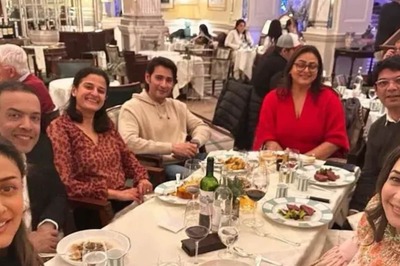


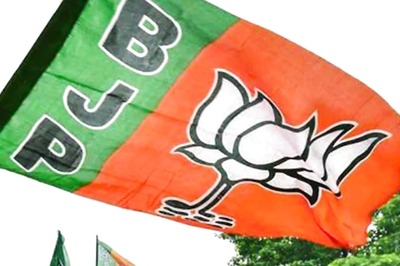


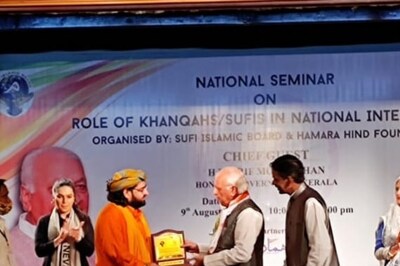
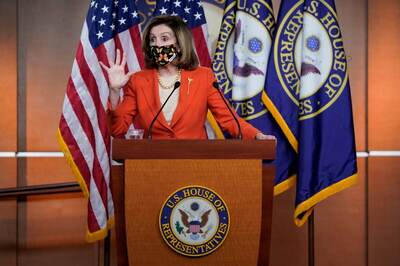


Comments
0 comment